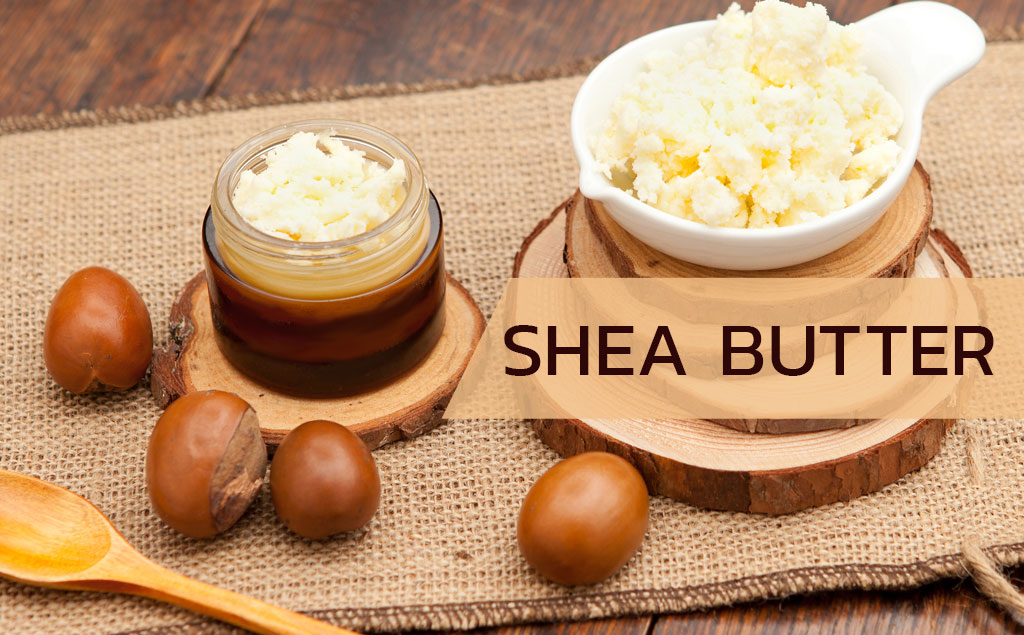Shea butter is one of the most valuable skincare products today. Its high fatty qualities make it a great moisturizer of skin and hair.
About Shea Butter
Shea butter is extracted from the African shea tree. The shea tree naturally grows only in savannah regions of Sudan. A shea tree becomes the most productive at the age of 50 and then remains so for another century. The content of the fruit is 50% fat and that is where the butter is derived from. Therefore, it is higher in cost in comparison to other oils used for mass production.
How Shea Butter is Used
It is used in cosmetics for the skin, hair- care, and soaps. Already in the times of Cleopatra shea butter for cosmetic use was carried to Egypt. The Egyptians used the healing qualities of shea to protect their skin and hair from the sun and winds of the African desert, to reduce inflammation and even rheumatism. People used shea butter even to protect the paws of their dogs. Shea butter was also used to make burning oil and soaps.
It calms the scalp and moisturizes hair. It is harder for sebum, the body’s natural moisturizer to sliee down the curly hair shaft and keep it moisturized. Shea butter doesn’t let the hair look greasy while also moisturizing it. Different types of acids contained in shea butter balance each other out and that prevents not just your hair from looking greasy but also your skin from looking oily.
Shea butter is amazing for skin
Shea butter is amazing for skin. No matter what your skin type is, it is safe to use. The fatty acids contained in shea butter are moisturizing. It is quickly absorbed into your skin and holds the moisture protecting against dryness. Vitamins A and E make it antioxidant, which is important to slow down the aging process. Shea butter can reduce bagging and the appearance of wrinkles around the eyes. It may even help against acne.


Most people I talk to have no clue that scalp therapy shampoos for fast hair growth (of course with no sulfates, no parabens and no DEA) even exist. We all can now have longer hair and have more alternatives. Undoubtedly worth looking up.
If you’re talking about alopecia, damaged hair, preventing hair disorders, hair growth, hair health in general, very similar principles become relevant.
As a general rule, you will want to stay away from hair treatments and products that include chemicals like parabens, DEA or sulfates.
What’s beneficial for your hair is good for your skin also.
It goes without saying the content here is so accurate for multiple reasons. It stays away from the common mistakes and pitfalls most fall into: getting ineffective alternatives. Greatly appreciated!
Acne skincare is not about just showers.
Acne skincare is also about wearing clean clothes and sleeping on clean pillows.